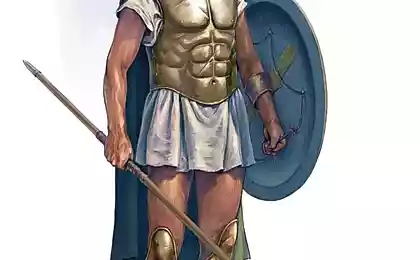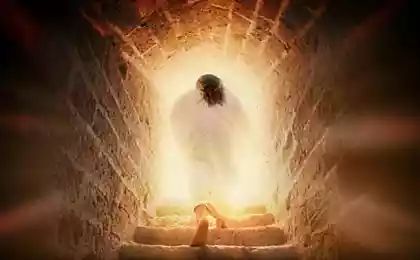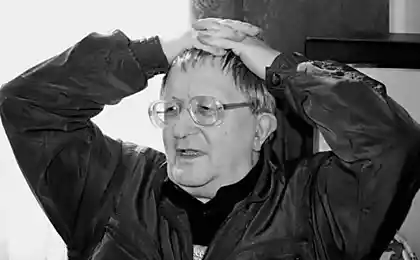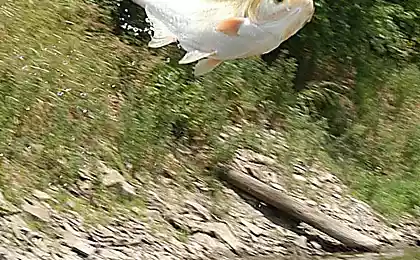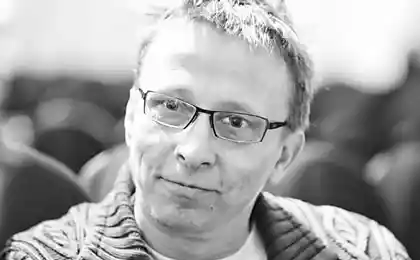535
Do birds sing in hell
Horace Joseph Grisli during one of the inspections of Auschwitz by Himmler, standing close to the barbed wire, requires food for prisoners.
The incredible story of a British prisoner of war, more than 200 times that escapes, and then returned to the camp.
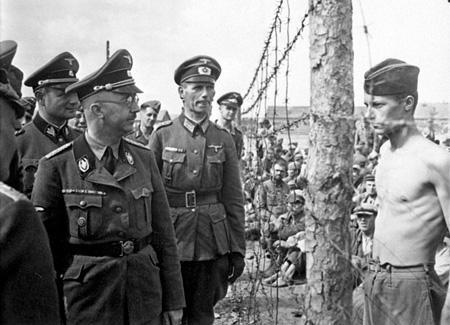
Horace Joseph Grisli (Horace Joseph Greasley) was one of twin boys born 25 December 1918 in the English village Ibstok (Leicestershire). He was 20 years old and worked as a young barber, when in the spring of 1939, Hitler went to Czechoslovakia. As adopted in the UK law on universal conscription he was declared an appeal, which were subject to all able-bodied men between 18 and 40 years old. These were immediately Horace and his brother Harold. But militant opposition Horace Grisli proved short-lived. In May 1940 in France, he was captured. He had a difficult path through Europe in Upper Silesia, which at that time was under the rule of Nazi Germany.
Caught in a POW camp in the town of Gmina Łambinowice (it. Lamsdorf) Grisli Horace met a 17-year-old translator Rauhbah Rose (Rosa Rauchbach) - the daughter of the chief of the quarry where the prisoners worked. Between them there was just mutual admiration that rapidly escalated into a love affair. Rosa hid their Jewish origin, exposing them to even greater danger. Exposing their relationship meant certain death for both of them. Despite this, in broad daylight, right under the noses of the guards, they found hiding places, more often it was the production workshops and retire at the earliest opportunity.
A few weeks later Horace Grisli transferred to Auschwitz, but this did not prevent their relationship. With the help of a barber who cut his prisoners and prisoners of war had contact with different camps, they were able to exchange notes. Together with friends Grisli dug a tunnel under the fence and escaped under cover of night to his mistress when she performed her duties translator in nearby camps. He then returned to the camp. Sometimes Grisli made such attacks more than three times a week. Sometimes he brought food and other essentials, which gave him a rose. So, along with other prisoners, he managed to gather details on the radio and listen to the news of the British radio station BBC BBC.
Five years Horace Grisli worked in factories and quarries for the Third Reich. For five years he ran on a date, then again to return to the horror of the concentration camps. He was released after 4 years and 364 days, in May 1945.
After the war, he continued to receive letters from Rosa, was her surety, when she took a job as a translator for the Americans. However, he soon received the sad news that Rosa had died in childbirth. A child whose paternity is not established, the same does not survived. Grisli himself said that he did not have confidence in the fact that it was his child.
After demobilization he returned to his native England, where he worked as a barber, then trucking company, has organized its own taxi cab company. In 1975 he married, had a son and a daughter. In 1988 his family moved to Spain, where he died in his sleep in February 2010.
In 2008, the 90th anniversary of Horace Grisli was released book "Do birds sing in hell?» (Do The Birds Still Sing In Hell?), Written by him together with writer Ken Scott (Ken Scott) about the events of that time.
The incredible story of a British prisoner of war, more than 200 times that escapes, and then returned to the camp.

Horace Joseph Grisli (Horace Joseph Greasley) was one of twin boys born 25 December 1918 in the English village Ibstok (Leicestershire). He was 20 years old and worked as a young barber, when in the spring of 1939, Hitler went to Czechoslovakia. As adopted in the UK law on universal conscription he was declared an appeal, which were subject to all able-bodied men between 18 and 40 years old. These were immediately Horace and his brother Harold. But militant opposition Horace Grisli proved short-lived. In May 1940 in France, he was captured. He had a difficult path through Europe in Upper Silesia, which at that time was under the rule of Nazi Germany.
Caught in a POW camp in the town of Gmina Łambinowice (it. Lamsdorf) Grisli Horace met a 17-year-old translator Rauhbah Rose (Rosa Rauchbach) - the daughter of the chief of the quarry where the prisoners worked. Between them there was just mutual admiration that rapidly escalated into a love affair. Rosa hid their Jewish origin, exposing them to even greater danger. Exposing their relationship meant certain death for both of them. Despite this, in broad daylight, right under the noses of the guards, they found hiding places, more often it was the production workshops and retire at the earliest opportunity.
A few weeks later Horace Grisli transferred to Auschwitz, but this did not prevent their relationship. With the help of a barber who cut his prisoners and prisoners of war had contact with different camps, they were able to exchange notes. Together with friends Grisli dug a tunnel under the fence and escaped under cover of night to his mistress when she performed her duties translator in nearby camps. He then returned to the camp. Sometimes Grisli made such attacks more than three times a week. Sometimes he brought food and other essentials, which gave him a rose. So, along with other prisoners, he managed to gather details on the radio and listen to the news of the British radio station BBC BBC.
Five years Horace Grisli worked in factories and quarries for the Third Reich. For five years he ran on a date, then again to return to the horror of the concentration camps. He was released after 4 years and 364 days, in May 1945.
After the war, he continued to receive letters from Rosa, was her surety, when she took a job as a translator for the Americans. However, he soon received the sad news that Rosa had died in childbirth. A child whose paternity is not established, the same does not survived. Grisli himself said that he did not have confidence in the fact that it was his child.
After demobilization he returned to his native England, where he worked as a barber, then trucking company, has organized its own taxi cab company. In 1975 he married, had a son and a daughter. In 1988 his family moved to Spain, where he died in his sleep in February 2010.
In 2008, the 90th anniversary of Horace Grisli was released book "Do birds sing in hell?» (Do The Birds Still Sing In Hell?), Written by him together with writer Ken Scott (Ken Scott) about the events of that time.


